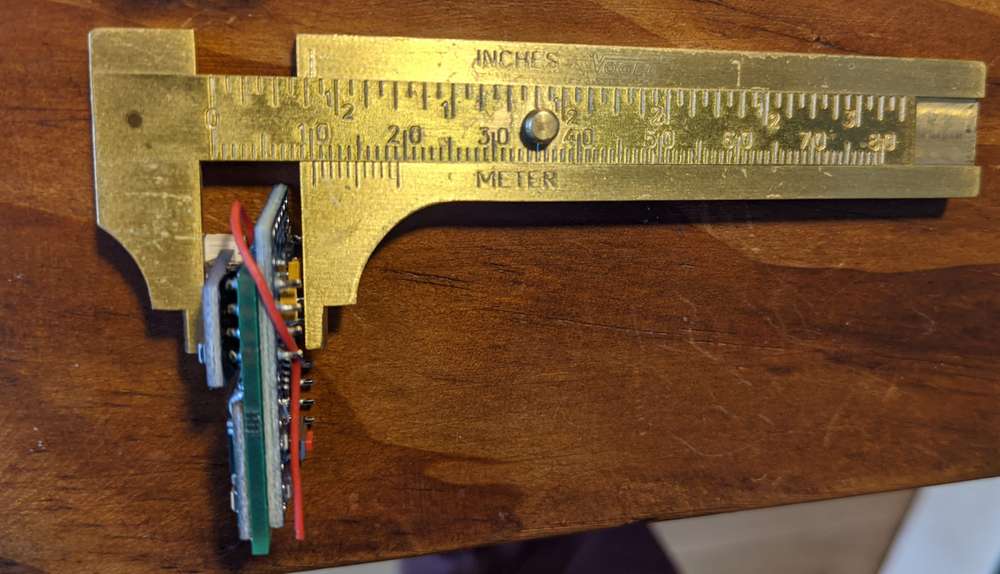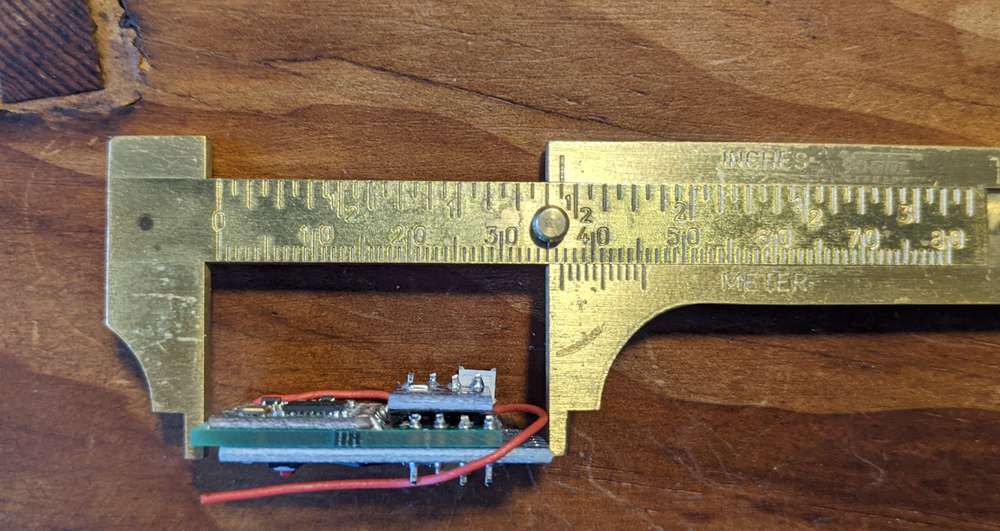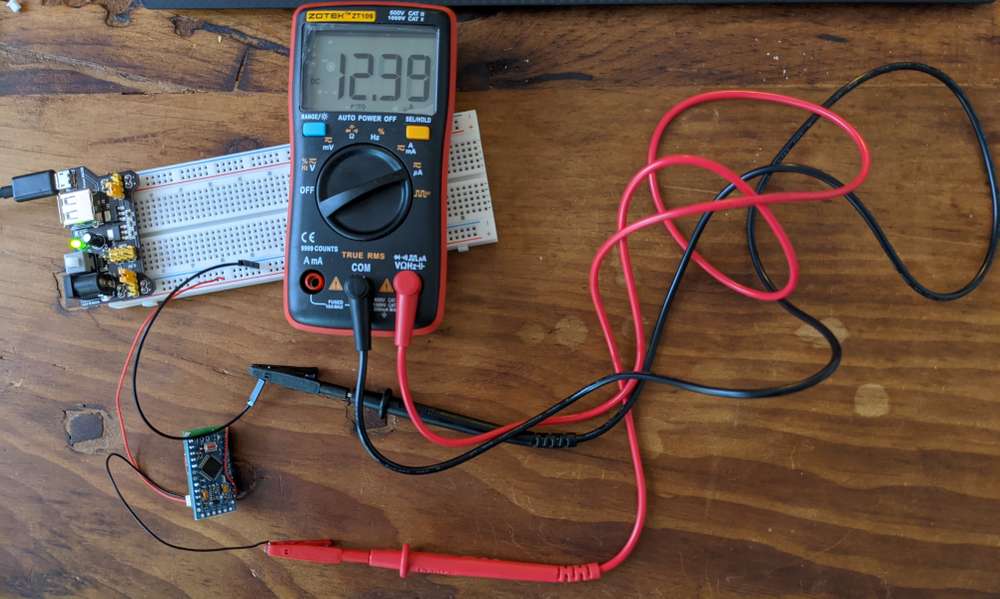Hi everyone,
thanks for implementing node-red-contrib-mysensors, which works great and has rejuvenated my interest in MySensors! I find it a lot more accessible compared to others controllers like HomeAssistant, with which I always had problems in implementing my own sensors mainly due to hidden raw data in HomeAss (and others), also problems with persistence (which I did not want) etc etc. Node-Red is very transparent I think, and a great way to receive and process/display MySensor data.
Now I am looking into getting my dashboard dynamic. I have a couple of MySensors nodes, which are pretty identical (apart from the nodeId), sending 4 childSensorIds of interest to me, based on which I also added a msg.type (temp, humi, pres or voltage). nodeIds are hardcoded in the sketch, so this does not need handling.
What I would like to do is to show received data without any further ado, when a node is transmitting (meaning in my case when it has battery power).
A node is transmiting -> data is presented in a table.
A node is out of power -> entries are removed rsp. not shown in the table, are at least not updated anymore.
A new node is added to the network -> data is automatically appended to the table.
Table data might possibly be shown via a template node, see below.
What I did not get now despite many tries is how to store the received sensor data in an array or collection, to iterate over this in the template node. I guess the strucutre would be to add an entry for every nodeId, and as "subentries" (key:values?) the type and msg.payload. All of this stored in global or flow context to be accessible by the template node.
Now, anyone might have a hint how to declare the array/collection and how to store and update the sensor data? This is what I did not get to work, see below.
Thanks everyone for any hints,
Joost
[
{
"id": "97bf2754.81864",
"type": "debug",
"z": "654a29b5.1136",
"name": "",
"active": true,
"tosidebar": true,
"console": false,
"tostatus": false,
"complete": "true",
"targetType": "full",
"statusVal": "",
"statusType": "auto",
"x": 370,
"y": 380,
"wires": []
},
{
"id": "10894f66.719a01",
"type": "ui_template",
"z": "654a29b5.1136",
"group": "38e6fc1d.b2f114",
"name": "",
"order": 17,
"width": 0,
"height": 0,
"format": "<div ng-bind-html=\"msg.payload\"></div>\n\n<div layout=\"row\" layout-align=\"start center\">\n <span flex>Node ID</span>\n <span flex>Temp</span>\n <span flex>Humi</span>\n <span flex>Pres</span>\n <span flex>Voltage</span>\n</div>\n<div layout=\"row\" layout-align=\"start center\" ng-repeat=\"individual_data in msg.global_individual_data\">\n <span flex style=\"color: green\">{{individual_data.node}}</span>\n <span flex style=\"color: red\">{{individual_data.node.humi}}</span>\n <span flex style=\"color: black\">{{individual_data.node.pres}}%</span>\n <span flex style=\"color: black\">{{individual_data.node.voltage}}</span>\n</div>",
"storeOutMessages": true,
"fwdInMessages": true,
"resendOnRefresh": true,
"templateScope": "local",
"x": 380,
"y": 340,
"wires": [
[]
]
},
{
"id": "b98e0e8c.b686c",
"type": "function",
"z": "654a29b5.1136",
"name": "Store nodeIDs in array",
"func": "var nodeId_array=global.get(\"nodeId_array\");\nif (nodeId_array===undefined) {\n nodeId_array=[];\n}\n\nif (! nodeId_array.includes(msg.nodeId)) {\n nodeId_array.push(msg.nodeId);\n global.set(\"nodeId_array\", nodeId_array);\n}\nmsg.nodeId_array=nodeId_array;\n\n//key=msg.nodeId+\".\"+msg.type;\n//var individual_data={ \"node\":msg.nodeId, \"type\":msg.type, \"payload\":msg.payload};\nvar nodekey=msg.nodeId;var datatype=msg.type;var payload=msg.payload;\n//var individual_data={ nodekey, {datatype, payload}};\nvar ind_data=[];\nind_data.push[nodekey][datatype]=payload;\n\nvar global_individual_data=global.get(\"global_invidual_data\");\nif (global_individual_data===undefined) {\n global_individual_data={\"node\":0,\"type\":\"voltage\", \"payload\":3.3333 };\n}\n//global_individual_data.add(individual_data);\n//var nodekey=msg.nodeId;var datatype=msg.type;\n//global_individual_data[nodekey][datatype]=msg.payload;\n\nglobal.set(\"global_individual_data\",global_individual_data);\nmsg.global_individual_data=global_individual_data;\n\n//for (i=0;i<3;i++){\n//message=message+i; //add count to message\n//var newmsg={payload:message,topic:msg.topic}\n// m_out.push(newmsg);\n//return[m_out];\n\nreturn msg;\n\n//local.count +=1;\n//msg.payload=\"F2 \"+msg.payload+\" \"+local.count;\n//context.set('data',local);\n",
"outputs": 1,
"noerr": 0,
"initialize": "",
"finalize": "",
"x": 180,
"y": 340,
"wires": [
[
"10894f66.719a01",
"97bf2754.81864"
]
]
},
{
"id": "872133a5.70d8a8",
"type": "function",
"z": "654a29b5.1136",
"name": "msg.topic according to childSensorId",
"func": "switch (msg.childSensorId) {\n case 0:\n msg.topic = \"Node \" + msg.nodeId + \" Temp\";\n msg.type=\"temp\";\n break;\n case 1:\n msg.topic = \"Node \" + msg.nodeId + \" Humi\";\n msg.type=\"humi\";\n break;\n case 2:\n msg.topic = \"Node \" + msg.nodeId + \" Press\";\n msg.type=\"pres\";\n break;\n case 9:\n msg.topic = \"Node \" + msg.nodeId + \" Voltage\";\n msg.type=\"volt\";\n break;\n}\n\nvar datetimeJC = new Date();\nmsg.timestampJC = datetimeJC.getHours() + \":\" + ('00' + datetimeJC.getMinutes()).slice(-2);\n\nreturn msg;\n",
"outputs": 1,
"noerr": 0,
"initialize": "",
"finalize": "",
"x": 190,
"y": 260,
"wires": [
[
"b359fbb4.3b12f",
"b98e0e8c.b686c"
]
]
},
{
"id": "ce62c592.b3c958",
"type": "switch",
"z": "654a29b5.1136",
"name": "Filter childSensorIds",
"property": "childSensorId",
"propertyType": "msg",
"rules": [
{
"t": "eq",
"v": "0",
"vt": "str"
},
{
"t": "eq",
"v": "1",
"vt": "str"
},
{
"t": "eq",
"v": "2",
"vt": "str"
},
{
"t": "eq",
"v": "9",
"vt": "str"
}
],
"checkall": "false",
"repair": false,
"outputs": 4,
"x": 240,
"y": 140,
"wires": [
[
"872133a5.70d8a8"
],
[
"872133a5.70d8a8"
],
[
"872133a5.70d8a8"
],
[
"872133a5.70d8a8"
]
]
},
{
"id": "2434c5bc.48688a",
"type": "mysdecode",
"z": "654a29b5.1136",
"database": "",
"name": "",
"mqtt": false,
"enrich": false,
"x": 290,
"y": 40,
"wires": [
[
"3d2bf478.a96f2c",
"ce62c592.b3c958"
]
]
},
{
"id": "d8a0a27c.b28218",
"type": "serial in",
"z": "654a29b5.1136",
"name": "",
"serial": "65ccd652.db113",
"x": 70,
"y": 40,
"wires": [
[
"2434c5bc.48688a"
]
]
},
{
"id": "38e6fc1d.b2f114",
"type": "ui_group",
"z": "",
"name": "Default",
"tab": "d3c44e8c.f5c748",
"order": 1,
"disp": true,
"width": "8",
"collapse": true
},
{
"id": "65ccd652.db113",
"type": "serial-port",
"z": "",
"serialport": "/dev/ttyUSB0",
"serialbaud": "38400",
"databits": "8",
"parity": "none",
"stopbits": "1",
"waitfor": "",
"dtr": "none",
"rts": "none",
"cts": "none",
"dsr": "none",
"newline": "\\n",
"bin": "false",
"out": "char",
"addchar": "",
"responsetimeout": "10000"
},
{
"id": "d3c44e8c.f5c748",
"type": "ui_tab",
"z": "",
"name": "JC_Dashboard",
"icon": "dashboard",
"disabled": false,
"hidden": false
}
]



